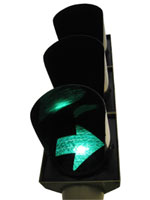Cerner gets green light in London
- 11 February 2009
 |
| Cerner gets green light in London |
NHS London and the NHS London Programme for IT have given the green light to further Cerner deployments in the capital.
The decision comes despite the fact that a programme of work to fix 22 known problems is running late and has yet to be completed.
The Royal Free Hampstead NHS Trust, where a Cerner implementation has run into well-publicised problems, reports that although good progress has been made it will not be possible to judge until March whether the fixes require work.
Implementations of Cerner’s software were shelved in October and an emergency ‘recovery plan’ instituted by LPfIT, BT and Cerner after serious problems with the Millennium software came to light at Barts and the London and Royal Free.
In January board papers the Royal Free’s chief executive, Andrew Way, reported good progress had been made, though the 90 day rescue project had been extended by agreement. The trust’s project board will monitor progress and “test the views of clinical and administrative staff in early March to assess the degree of improvement.”
EHI understands that a decision to restart Cerner implementations in London was taken at the beginning of February.
In December, NHS chief executive David Nicholson told the Commons Health Select Committee that no more Cerner implementations would occur until known problems were resolved.
He said: “We’ve got some serious issues around the Cerner system, particularly in London at the Royal Free, and what we’ve said to Cerner and BT is that they’ve got to solve that problem at the Royal Free before we think about rolling it out across the rest of the NHS.”
At least one London trust reports having been told in the last few days that it should now “re-engage with Cerner.”
In a statement to E-Health Insider, LPfIT said on Tuesday: “NHS London has renewed its commitment to continue to implement Cerner Millennium within acute trusts as part of the rollout across the capital of electronic care records to deliver improved patient care.”
The statement added: “Due to the good progress made with the improvement programme and greater confidence in the functionality and stability of the system, the London Acute Programme Board has recommended that the implementation of Cerner Millennium should continue in London.”
LPfIT said that several upgrades have been made to the Cerner Millennium London Configuration 1 (LC1) software currently being used by the Royal Free to streamline and enhance the system for users.
It added that improvements are also being made at the trusts using the LC0 version of Cerner Millennium – Barnet and Chase Farm, Queen Mary’s Sidcup and Barts and The London.
BT said in a statement: "We are pleased with the decision reached by the London Acute Programme Board to recommend that we move forward with the rollout of Cerner Millennium. This follows the good progress we have made in implementing an improvement plans at the four live trusts."
LPfIT stated: “Throughout this period trusts have continued with their deployment plans and NHS London Programme for IT will now work on agreeing appropriate go-live dates with these trusts.”
The next NHS sites that had been due to take Cerner Millennium from BT are Kingston Hospital NHS Trust and St George’s.
There is understood to be intense pressure in NHS London to get the NHS IT programme back on the rails, fix known problems in the CRS software and not repeat past mistakes.
BT, the local service provider in London, has yet to complete a long-running contract renegotiation (CCN3), which is thought to centre on a new delivery model for installing Cerner.




